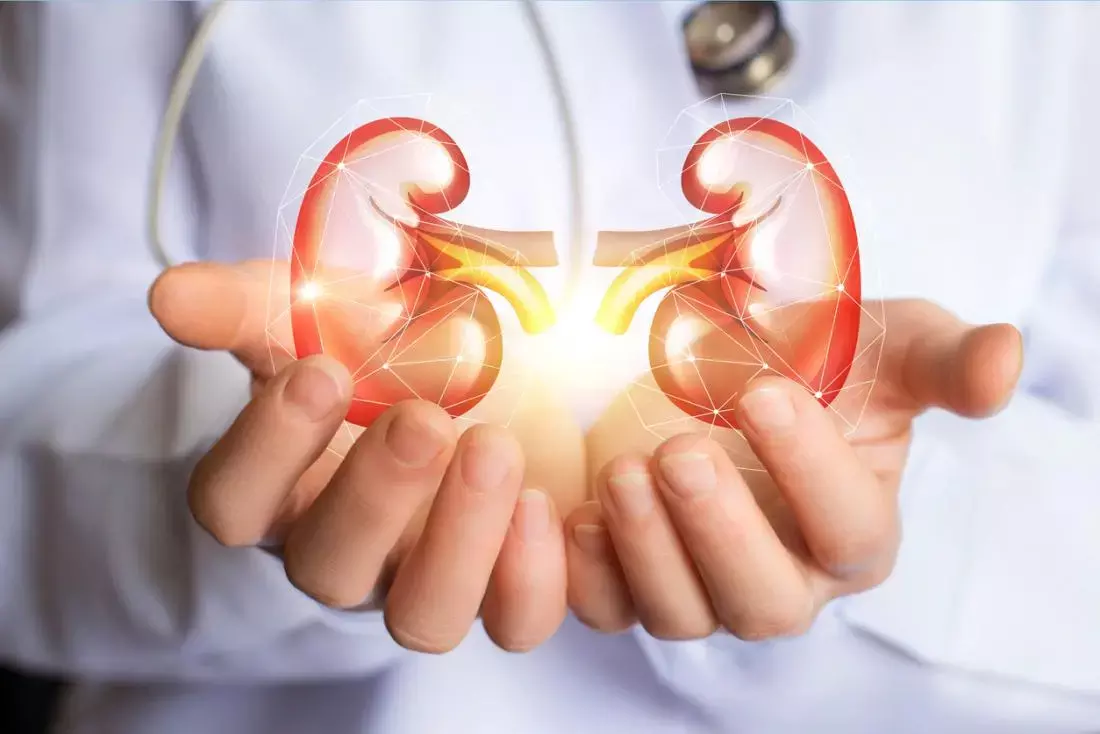- Home
- Medical news & Guidelines
- Anesthesiology
- Cardiology and CTVS
- Critical Care
- Dentistry
- Dermatology
- Diabetes and Endocrinology
- ENT
- Gastroenterology
- Medicine
- Nephrology
- Neurology
- Obstretics-Gynaecology
- Oncology
- Ophthalmology
- Orthopaedics
- Pediatrics-Neonatology
- Psychiatry
- Pulmonology
- Radiology
- Surgery
- Urology
- Laboratory Medicine
- Diet
- Nursing
- Paramedical
- Physiotherapy
- Health news
- Fact Check
- Bone Health Fact Check
- Brain Health Fact Check
- Cancer Related Fact Check
- Child Care Fact Check
- Dental and oral health fact check
- Diabetes and metabolic health fact check
- Diet and Nutrition Fact Check
- Eye and ENT Care Fact Check
- Fitness fact check
- Gut health fact check
- Heart health fact check
- Kidney health fact check
- Medical education fact check
- Men's health fact check
- Respiratory fact check
- Skin and hair care fact check
- Vaccine and Immunization fact check
- Women's health fact check
- AYUSH
- State News
- Andaman and Nicobar Islands
- Andhra Pradesh
- Arunachal Pradesh
- Assam
- Bihar
- Chandigarh
- Chattisgarh
- Dadra and Nagar Haveli
- Daman and Diu
- Delhi
- Goa
- Gujarat
- Haryana
- Himachal Pradesh
- Jammu & Kashmir
- Jharkhand
- Karnataka
- Kerala
- Ladakh
- Lakshadweep
- Madhya Pradesh
- Maharashtra
- Manipur
- Meghalaya
- Mizoram
- Nagaland
- Odisha
- Puducherry
- Punjab
- Rajasthan
- Sikkim
- Tamil Nadu
- Telangana
- Tripura
- Uttar Pradesh
- Uttrakhand
- West Bengal
- Medical Education
- Industry
Icosapent ethyl improves kidney function in patients with CVD and diabetes: REDUCE-IT RENAL

USA: Data from the REDUCE-IT RENAL trial showed that among statin-treated patients with increased triglycerides and well-controlled LDL-cholesterol, icosapent ethyl reduces cardiovascular events. These benefits also extend to patients with impaired renal function.
Patients with elevated triglycerides have a significant residual risk for coronary events, despite having well-controlled low-density lipoprotein cholesterol on statin therapy. The study, published in the journal Circulation found that treatment with icosapent ethyl may significantly reduce cardiovascular events and mortality in this patient population. The findings are applicable to chronic kidney disease (CKD) patients across the spectrum of baseline kidney function.
CKD is associated with adverse outcomes in patients with known cardiovascular disease (CVD) or diabetes. Medication sued commonly for CVD treatment is less effective among those with reduced kidney function. In the analysis, Deepak L. Bhatt, Brigham and Women's Hospital, Harvard Medical School, Boston, MA, and colleagues to explore the effects of icosapent ethyl versus placebo across the range of kidney function among patients enrolled in the REDUCE-IT (Reduction of Cardiovascular Events with Icosapent Ethyl-Intervention Trial) -- a multicenter, double-blind, placebo-controlled trial.
In the REDUCE-IT trial, statin-treated patients with elevated triglycerides (135–499 mg/dL) who had CVD or diabetes and 1 additional risk factor were randomly assigned to treatment with icosapent ethyl (4 g daily) or placebo. For the analysis, patients from the trial were categorized by prespecified estimated glomerular filtration rate (eGFR) categories to analyze the effect of icosapent ethyl on the primary endpoint and key secondary endpoint.
The primary endpoint was a composite of cardiovascular death, nonfatal myocardial infarction, nonfatal stroke, coronary revascularization, or unstable angina. The secondary endpoint was a composite of cardiovascular death, nonfatal myocardial infarction, or nonfatal stroke.
Median baseline eGFR was 75 mL·min–1·1.73 m–2 (range, 17–123 mL·min–1·1.73 m–2) among the 8179 REDUCE-IT patients.
Based on the analysis, the researchers found the following:
- There were no meaningful changes in median eGFR for icosapent ethyl versus placebo across study visits.
- Treatment with icosapent ethyl led to a consistent reduction in both the primary and key secondary composite endpoints across baseline eGFR categories.
- Patients with eGFR <60 mL·min–1·1.73 m–2 treated with icosapent ethyl had the largest absolute and similar relative risk reduction for the primary composite endpoint (icosapent ethyl versus placebo, 21.8% versus 28.9%; hazard ratio [HR], 0.71) and key secondary composite endpoint (16.8% versus 22.5%; HR 0.71).
- The numeric reduction in cardiovascular death was greatest in the eGFR <60 mL·min–1·1.73 m–2 group (icosapent ethyl: 7.6%; placebo: 10.6%; HR, 0.70).
- Although patients with eGFR <60 mL·min–1·1.73 m–2 treated with icosapent ethyl had the highest numeric rates of atrial fibrillation/flutter (icosapent ethyl: 4.2%; placebo 3.0%; HR 1.42) and serious bleeding (icosapent ethyl: 5.4%; placebo 3.6%; HR, 1.40), HRs for atrial fibrillation/flutter and serious bleeding were similar across eGFR categories.
The authors concluded, "in REDUCE-IT, icosapent ethyl reduced fatal and nonfatal ischemic events across the broad range of baseline eGFR categories."
Reference:
The study titled, "Benefits of Icosapent Ethyl Across the Range of Kidney Function in Patients With Established Cardiovascular Disease or Diabetes: REDUCE-IT RENAL," was published in the journal Circulation.
Dr Kamal Kant Kohli-MBBS, DTCD- a chest specialist with more than 30 years of practice and a flair for writing clinical articles, Dr Kamal Kant Kohli joined Medical Dialogues as a Chief Editor of Medical News. Besides writing articles, as an editor, he proofreads and verifies all the medical content published on Medical Dialogues including those coming from journals, studies,medical conferences,guidelines etc. Email: drkohli@medicaldialogues.in. Contact no. 011-43720751


